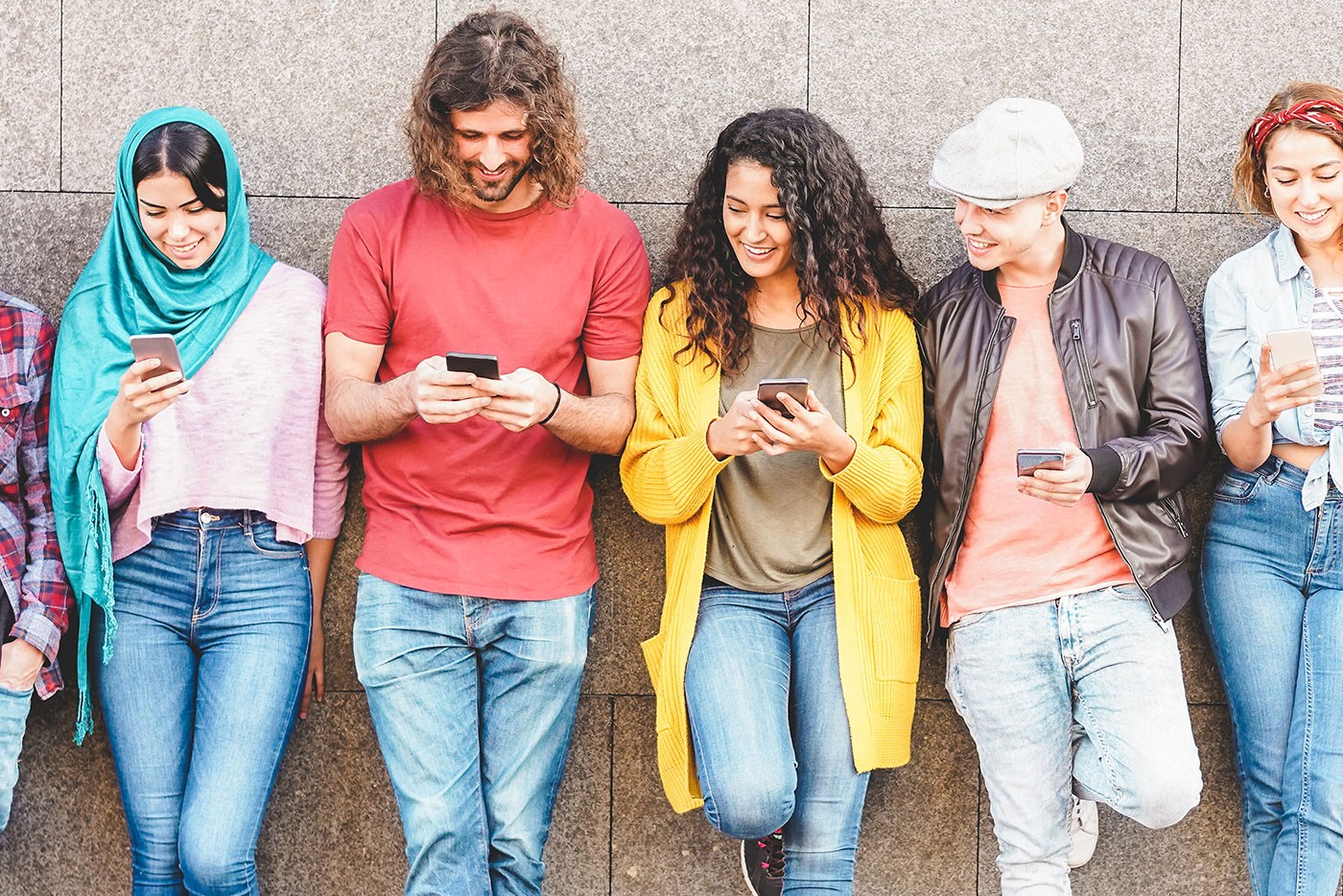Social media networks provide businesses with important yet easy ways to connect with their customers. After creating an account, entrepreneurs need the right content and posting schedule to engage existing and potential clients meaningfully. But with inadequate knowledge of social media 2020 trends, they may not fully exploit the marketing opportunities included in social networks.
By the final quarter of 2020, almost half of the world’s population was using social media, a 9% increase from the 2019 statistic. What’s more, new niche social networks continued to crop and rise in popularity. These numbers mean that entrepreneurs must watch 2020 trends in social media to keep with new consumer demands.
From the increased use of memes to the creation of ephemeral content, this article highlights trends that guided social media marketers through 2020. But more importantly, it gives a detailed prediction of what 2021 may hold for entrepreneurs.
Are you ready for the information that might deliver the much-needed success for your business? Here it is.
6 Social Media Trends In 2020
Social media is so deeply rooted in people’s lives that it is almost a necessity. On average, a user spends nearly two and a half hours every day consuming content in eight different social networks. So, what have businesses been doing to increase user engagement and conversions?
Here are the trends.
Conversion of Social Media to Customer Service Centers
Your customers don’t just want to get on a social network to check out friends and celebrities. They also want a platform where they can text your customer support and get a quick response. By late 2019, approximately 30% of customers preferred social channels to phones when communicating with businesses.
However, 2020 saw a hyper-growth in this statistic, with 80% of shoppers messaging companies through social media. Of these customers, 60% expect businesses to get back to them in an hour or less. Thus, throughout the year, enterprises have been on their toes trying to meet the new customer desire. For example:
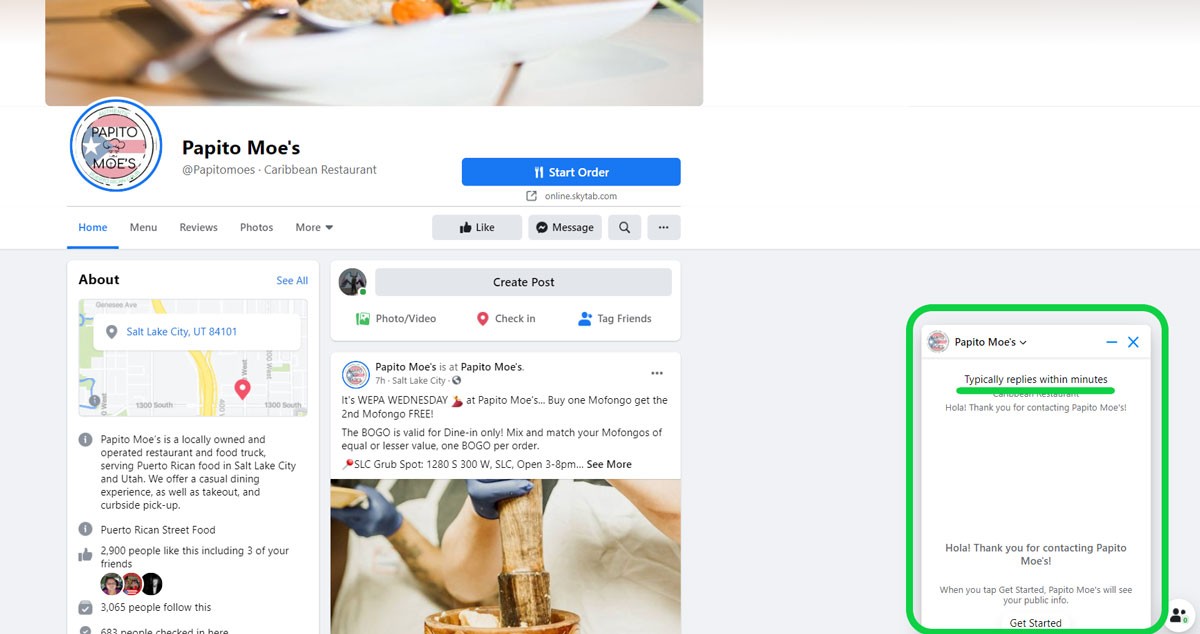
But using social media to speak to customers directly is not all hype. Businesses can cut the costs associated with resolving issues by a whopping 83% if they use social media customer support instead of phones. But how are brands implementing this trend?
On networks such as Twitter, companies continue to maintain dedicated handles. Other sites have direct messaging features, which customers can use. Behemoths such as Facebook are working on perfecting tools dedicated to facilitating business-to-consumer communication, such as WhatsApp Business.
The Rise and Rise of Ephemeral Content
Ephemeral content, which disappears after a short period, gained massive traction as soon as Snapchat introduced it in 2011. Businesses saw its worth and jumped at the first opportunity to use it for marketing purposes. In 2020 trends in social media, ephemeral content became king, with over 35% of companies using Stories as a product promotion tool.
Almost all major social networks have a feature to accommodate ephemeral content. Facebook and Instagram have Stories, which attracts hundreds of millions of users daily. On the same note, TikTok capitalized on short-form videos to garner half a billion users in approximately four years.
Some of the benefits that businesses try to pursue with ephemeral content include increased user engagement and a wider audience reach. Further, companies continue to showcase their products through Stories, which increases transparency on the business’s part. In so doing, the enterprise’s reputation improves, as does the product loyalty.
Did you know??? As of April 2020, the U.S. had the biggest Snapchat user base in the world, with an audience of almost 103 million users. India ranked in second place with a Snapchat audience base of 28.2 million users. In fact, Snapchat offers six different advertisement formats on the platform. (HubSpot)
Increased Focus on Metrics That Matter
Gone are the days when businesses would attain thousands of likes on a post about their product and consider it a success. Looking at the new media trends 2020, entrepreneurs are shifting their attention from surface-level metrics. Even social sites like Instagram are stopping the public display of likes.
You Might Also Like
In 2020, businesses are more focused on whether their posts are engaging enough to drive a conversation. The content of customers’ comments is far more important than how many people saw the post commented on. Thus, marketers continue delving deeper into social listening, an analysis to investigate conversations revolving around a company’s products and services.
The bottom line, businesses want what is working. If a social media campaign’s ROI is below the required target, the number of likes, shares, and retweets do not matter. In the long term, marketers that are not performing will have no place in the system. Here is an example of the metrics most companies are focusing on:
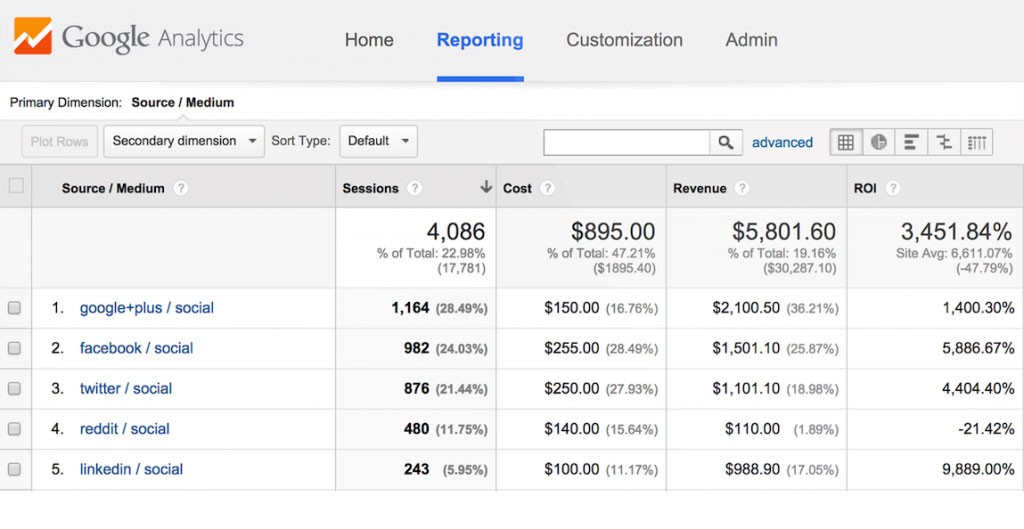
(Image Credit: Three Ventures)
Test your website’s SEO and social media score in 60 seconds!
Diib is one of the best SEO and social media monitoring tools in the world. Diib syncs to Facebook and Google Analytics and uses the power of big data to help you quickly and easily increase your social media traffic and SEO rankings.
- Easy-to-use automated social media + SEO tool
- Keyword and backlink monitoring + ideas
- Speed, security, + Core Vitals tracking
- Automated ideas to improve Social Media traffic + sales
- Over 500,000 global members
- Built-in benchmarking and competitor analysis
Used by over 500k companies and organizations:
Syncs with 
Micro over Macro-Influencers
Over the years, businesses have not been shy to exploit the power of social media influencers. Companies may end up paying exorbitant amounts to influencers in the hope that their conversions will soar. The strategy may work sometimes, but the 2020 marketer wants to ensure that it works every time.
Enter micro-influencers, the personalities that focus on a niche. So spurious do macro-influencers appear that 65% of consumers would rather consult a friend than take the word an influencer. However, micro-influencers are providing the authenticity that the macro cannot. For instance:

(Image Credit: Social Media Strategies Summit)
Since the micro influencer’s fan base is relatively small, they connect with their audience on an almost personal level. Businesses can leverage such relationships to increase a consumer’s engagement with their post. As statistics show, influencers with less than 5000 followers on Instagram maintain an engagement rate of 8.8%. Their counterparts with more than 10000 followers can only manage 3.6%.
Niche Platforms Began to Matter
Sure, social media powerhouses such as Facebook continued to dominate throughout 2020. But Niche platforms are taking their rightful place. Consequently, businesses are taking the necessary steps to include the newcomers in their marketing strategies.
One such platform is TikTok, whose adult users grew five-fold in 2020 social media trends. It would also be impossible to go over trends 2020 social media without mentioning the growth of Reddit. Recently, the fifteen-year-old social site experienced a 30% increase in the number of users.
After noting the explosion of niche platforms, businesses moved quickly to understand the drive behind such growth and what it means to their marketing strategies. But as mentioned later in the article, companies should not be too quick to take their eyes off traditional social media sites that experience no rapid growth.
Local Targeting Shines the Way
Local brands no longer have to fumble with how to connect with their audience. A feature like Instagram’s Geotag allows businesses to store the location they posted content from. Thus, creating location-specific content is easy, and companies love it.
Similarly, customers can tag their posts when posting about a brand. Afterward, the business can effortlessly analyze where their existing and potential clients reside. To make Geotag even more resourceful, customers are filtering stories and posts as per their location.
One of the extended uses of Geotag by businesses is the search for local influencers. New small businesses can search for posts location-wise, find the popular users, and reach out to them. Through this method, brands are cutting the cost and time taken to hire micro-influencers.
FACT: Over a two year period, there was a 900%+ growth in mobile searches for “___ near me today/tonight.” (HubSpot)
6 Social Media Trends to Watch In 2021
More than anything, an entrepreneur’s ability to foresee changes gives them a competitive edge. When it comes to social media, businesses that peek into the future of marketing strategies are uniquely positioned to stand out and succeed. Thus, it is sensible to look beyond social media trends for 2020 and explore what 2021 might present.
Take a look at the social media trends you need to be aware of in 2021.
Online Authenticity Will Mean Much More
Differentiation will rule customer engagement strategies in 2021. While businesses can achieve it through posting creative content, this will not help much. The holy grail of optimum user engagement will be raw and real content.
Consumers seem to hold authenticity in high regard, as 90% of customers would not support a brand associated with unauthentic content. That is a 4% increase from the 2017 metric. Further, Gen Zers, who account for 40% of consumers, continue to take an interest in companies with distinct values. Thus, businesses have no option to “keep it real” throughout 2021 and beyond.
There is a lot to do on the business’s part. While more than 90% of marketers feel that their content is authentic enough, consumers opine that less than 50% of brands meet the criteria.
Given the importance of authenticity, it is clear that only the businesses capable of getting it right will cut through the marketing noise. It will be no surprise to see marketers relentlessly upload honest, valid, and real content in the future. For example:
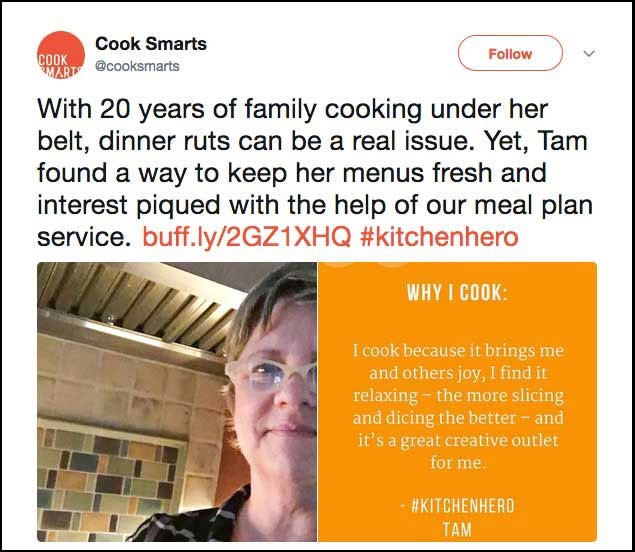
(Image Credit: Constant Content)
Established Social Media Platforms Will Take the Lead
It would be inappropriate to deny the niche social media platform’s place on 2020 social media trends. But the newcomers are facing challenges that traditional social sites battled years ago. Consequently, the trend of businesses spending their market dollars on older platforms will continue.
The numbers tell it all. A survey revealed that 60% of businesses have plans to increase their marketing expenditures on Instagram. Another 46% admitted their intentions to spend more on Facebook, while 45% will increase their YouTube and LinkedIn marketing budgets in 2021.
While niche websites may prevail soon, businesses do not seem to think that this will happen in 2021. Only 14% of brands plan to increase their TikTok marketing budget. Further, most companies (78%) feel that Facebook is the ideal social site to attain their marketing goals. Hence, 2021 should see a maintained use of traditional platforms to engage consumers and increase conversions.
Greater Use of AR and VR
Although social media 2020 trends feature a gradual adoption of technology by social platforms, 2021 will see tech become a competitive edge. Users are demanding a more real experience and social media sites want to give it to them. Undoubtedly, augmented reality (AR) and virtual reality (VR) will have widespread use. For example, the image below shows a house tour on a post being done through AR or VR:
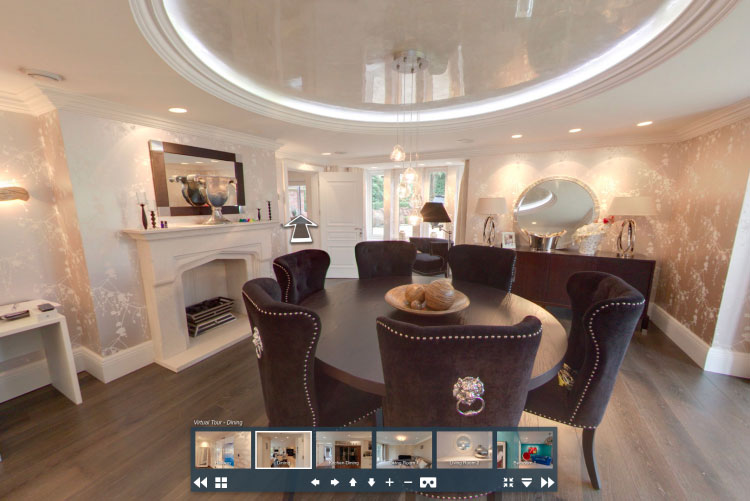
(Image Credit: Houseviz)
Businesses had varied uses of AR and VR in new media trends 2020. Consumers can now use filters to apply makeup and foresee their appearances before purchasing beauty products. It was also a common practice for brands to allow customers to use their logos to create short videos, animations, and memes that they would later share.
But 2021 will experience a different use of AR and VR. Facebook seems determined to keep its promise of presenting AR glasses by mid-year. Coupled with its social virtual reality world, Horizon, Facebook may enable social media users to meet, connect, and have fun in futuristic ways. Naturally, businesses will be on their toes figuring out how to engage the users in the virtual world.
A New Focus on Influencers
Similar to 2020 trends in social media, 2021 will continue to experience a surge in collaborations between businesses and influencers. There is no doubt that this strategy is cheaper and probably more effective compared to paid ads. But brands will need something different.
Unlike in social media trends for 2020 when businesses worked with a single celebrity, 2021 will feature collaborations with numerous, relatively popular niche influencers. As mentioned earlier, authenticity will play a huge part in how well a business engages consumers. Niche influencers are among the elements that will add realness to content.
It is also worth noting that an influencer’s scope will go beyond taking a picture while holding a product. The famous personalities may have to get involved in showing how to use a product, before-and-after videos, et cetera. Also, businesses will favor influencers that appear on a series of posts over those that upload single posts.
The Welcoming of Social Commerce
Thirty percent of businesses have or are scheduling to implement a social commerce plan. Additionally, over 50% of Gen Zers assert that social media greatly influenced what fashion product they purchased. What does this mean for brands?
In essence, 2021 is the age of social commerce. Social media platforms continue to include features that are turning them into online retail places. There are shop-able posts and online storefronts that businesses can readily incorporate in their marketing strategies.
As 2021 unfolds, it should be no surprise to find social commerce sales at par with online stores. Over 70% of brands use social media to increase customer acquisition. Thus, the practice of making a sale to a user without making them leave the social platform they are on will be more prevalent in 2021.
We hope that you found this article useful.
If you want to know more interesting about your site health, get personal recommendations and alerts, scan your website by Diib. It only takes 60 seconds.
The Video Boom Continues
While videos are no new trend, their use will surge throughout 2021. A Cisco study indicates that 82% of all content will be video come 2022. Going by the massive traction short-form video platforms such as TikTok gained in 2020, the study’s assertions are nothing more than the truth.
But one of the expected 2021 video trends is live streaming. Twitch, a live streaming platform, saw an 84% increase in its number of streamers in 2020. Today, streaming applies to not only games but also shopping events. With the pandemic rummaging across the world, businesses are even streaming services such as setting up bank accounts. This image shows the layout of the streaming platform Twitch:
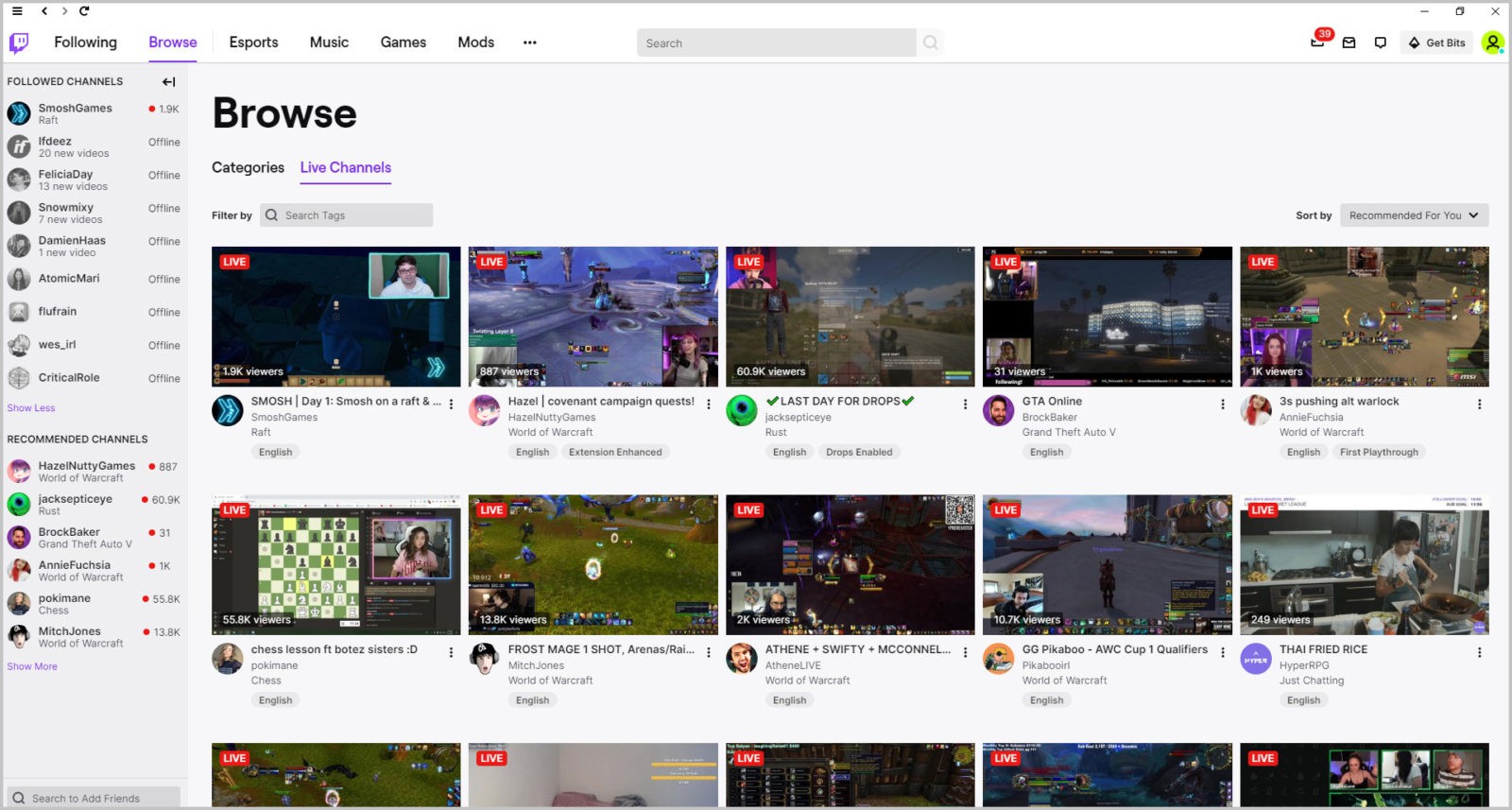
Consumers are also expressing their increased interest in live videos. More than 80% of users across major social sites, including Facebook, Instagram, and Tumblr, prefer streaming to traditional video content. Consequently, 2021 will see brands tirelessly explore ways to engage customers through live video.
Diib®: Let Trends Shape Your Marketing Strategy
One of the crucial lessons entrepreneurs should learn from trends 2020 social media is that there will always be a new way to capitalize on social networks. No matter how effective a business’s social media marketing strategy currently is, there exist many ways to perfect it. Keeping up with trends is among the surest ways of improving existing customer engagement methods.
Partnering with Diib Digital will provide you with an added measure of confidence that you’re accurately reading trends and your new campaign is effective and lucrative. Here are the features of our User Dashboard we’re sure you’ll love:
- Social media integration and performance
- Platform specific audience demographics
- Keyword, backlink, and indexing monitoring and tracking tools
- User experience and mobile speed optimization
- Technical SEO monitoring
Click here for your free scan or simply call 800-303-3510 to speak to one of our growth experts.
FAQ’s
Augmented Reality (AR) and Virtual Reality (VR) are current social media trends in 2020, as a way for brands to offer an enhanced user experience. Many companies have begun using AR-powered shopping to allow users to virtually try on products before they buy.
The resounding answer is no, it isn’t. That being said, social media is certainly evolving and changing, and you need to be willing to change with it.
Yes, it is a video-sharing social media platform.
According to Medium, as of Q2 2020, Facebook has more than 2.7 billion monthly users. That’s more than 2,700,000,000 users. This trend has been growing pretty steadily ever since the platform came into existence.
Millennials are far more likely than Gen Z to have allowed their use of social media platforms to wane. For example, use of Facebook, Instagram, Messenger and Twitter have seen dips in use.
